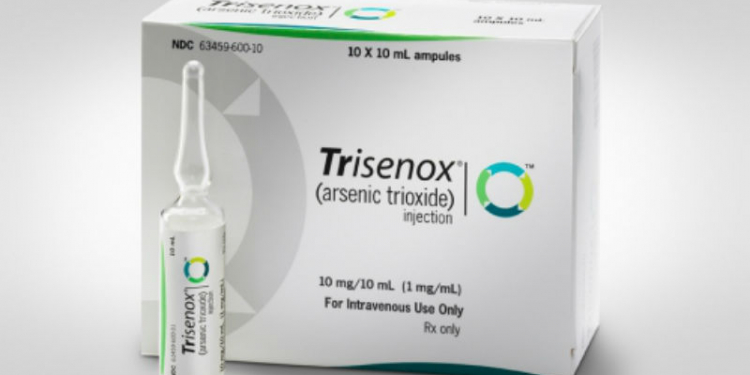The FINANCIAL — Teva Pharmaceutical Industries Ltd., on November 21 announced it has obtained approval from the European Commission for an indication extension of Trisenox (arsenic trioxide).
This marks an important advancement in treatment for Acute Promyelocytic Leukemia (APL) patients in Europe, as it is the first time that a form of acute leukemia can be effectively treated with a regimen that is entirely chemotherapy-free. APL is a rare and aggressive type of acute leukemia that can kill within hours or days if left untreated. Trisenox, in combination with retinoic acid, has shown a 99% overall survival rate with almost no relapses after more than four years (50 months) of median follow-up.
“Teva is committed to providing wider access to high-quality medicines to ensure more people can benefit from the treatments they need. We’re very pleased by this decision of the European Commission, and we look forward to offering a chemotherapy-free treatment option for all newly diagnosed APL patients,” said Rob Koremans, MD, President & CEO, Teva Global Specialty Medicines.
The decision by the European Commission, which follows a positive recommendation from the Committee for Medicinal Products for Human Use (CHMP) of the European Medicines Agency (EMA) on October 13, grants marketing authorization for first line use of Trisenox in the 28 countries of the European Union. The indication extension is for newly diagnosed low to intermediate risk Acute Promyelocytic Leukemia (APL) in combination with retinoic acid. Today’s announcement points to a recognition by the European Commission that treating low to intermediate risk APL with a chemo-free regimen of Trisenox plus retinoic acid can increase survival rates, dramatically reduce the risk of relapse, and help avoid chemotherapy-related side effects, such as the risk of life-threatening infections.
Welcoming the approval, Francesco Lo-Coco, Professor of Haematology and Head of the Laboratory of Integrated Diagnosis of Oncohematologic Diseases, Department of Biomedicine and Prevention, University of Rome Tor Vergata, Italy said, “This approval by the European Commission is good news for APL patients as we now have access to a cure for an acute leukemia without using chemotherapy. Moreover, this decision is a very positive endorsement by the European Commission, as it was made based solely on published academic research and studies. From now on, APL patients with non-high risk disease will have access to this chemotherapy-free regimen of Trisenox plus retinoic acid at diagnosis, which has the potential to increase survival rates while minimizing side effects associated with chemotherapy.”
In Europe, approximately 1,500 to 2,000 people are diagnosed with APL each year. APL, a life-threatening form of leukemia, can cause uncontrollable bleeding leading rapidly to death if left untreated. The rapid progression of APL leading to early mortality is a substantial problem, affecting up to 30% of patients4. Rapid diagnosis and commencement of treatment is essential to avoid early mortality.

































Discussion about this post